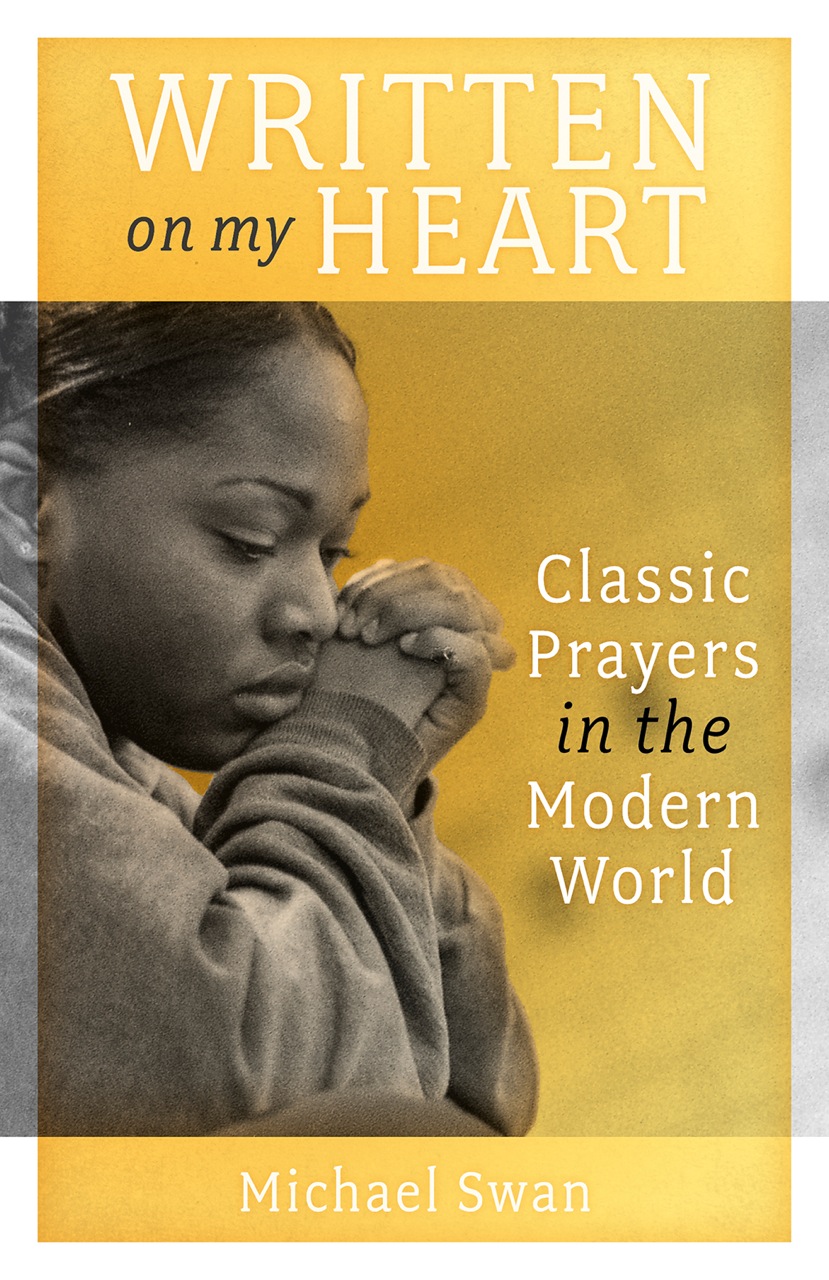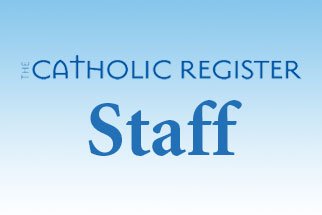Archdiocese of Toronto cancels all public Masses
Canada's largest diocese has implemented sweeping new cancellations and suspensions after a state of emergency was declared in Ontario due to the COVID-19 pandemic.
TORONTO -- The Archdiocese of Toronto, Canada’s largest diocese, has cancelled all weekend Masses after Ontario’s chief medical officer urged all public gatherings be limited to a maximum of 250 people.
Ontario English Catholic teachers reach contract settlement
Ontario’s English Catholic teachers have reached a tentative contract agreement with the province that could put an end to work stoppages in the Catholic education system.
Quebec bishops' ban now includes funerals and weddings
MONTREAL -- The bishops of Quebec have taken the unprecedented step of suspending all celebrations and events in churches across the province.
Readers Speak Out: March 15, 2020
Railway blues
The Register gives de facto support to the protesters who shut down crucial rail lines and disrupted the lives of untold thousands as a nation was held hostage by illegal protests against a legal pipeline. Notably absent, as it was in the CBC or most regional rating-hungry TV news programs, was any interview with Indigenous Canadians among the 20 bands who support the pipeline. They support it because it represents a real opportunity to lift themselves out of devastating poverty.
Written on my Heart by Michael Swan
 Written on my Heart
Written on my Heart
By Michael Swan
“Michael Swan has taken ten familiar prayers that he uses in his own daily prayer ritual and offers a deeply personal book that most everyone will nonetheless be able to relate to in some aspect. Using history, tradition, scripture and storytelling, each prayer is given as a passionate spirit of devotion, not as a prescription. In his own words, 'to memorize a prayer is to love it.' The title Written on my Heart is apt.”
—Fr. Ron Rolheiser, OMI, a theologian, teacher and award-winning author
Canadian orders: 80 pages / Paperback / $11.95 + $5.00 shipping / ISBN 978-1-62785-51-7-4 / Published by Novalis Publishing Inc.
US orders: 80 pages / Paperback / $11.95 + $8.00 shipping / ISBN 978-1-62785-51-7-4 / Published by Novalis Publishing Inc.
International orders: 80 pages / Paperback / $11.95 + $12.00 shipping / ISBN 978-1-62785-51-7-4 / Published by Novalis Publishing Inc.
Readers Speak Out: March 8, 2020
Vanier abuses
Re: Glen Argan: A lesson for all of us in Vanier’s fall (March 1):
Jean Vanier and L’Arche were a huge part of my formative years. As a child and again in my late teens I spent a year at L’Arche in Trosly, France.
Friars’ writing contest brings out students’ best
For Evelia Raphael, the subject matter of the annual Friars’ Student Writing Contest in The Catholic Register hit real close to home.
Grace before meals … and after and in between
The Catholic Register’s associate editor Michael Swan has taken one of his daily routines — praying — and turned it into a book, Written on My Heart. In it, he examines his experience with 10 memorized, traditional prayers and how they can deepen our relationship to the divine. In this excerpt from the book, he looks at how saying grace has played a role in his life.
I did not grow up saying grace at meals. At Christmas my father would jokingly recite some Latin grace he had learned while at university.
When I was an extremely bad Latin student in high school, I remember thinking not all of those sounds coming out of his mouth were words. I associated saying grace with a kind of lifeless, dour religion that serves as cover for a life filled with resentments and suspicion. It spoke to me of a sort of fearful narrowness and a brittle facade of outward propriety. If you are really grateful for food, you would eat it without hesitation and enjoy it. Solemnly pronouncing your gratitude is strictly a show — if not for others, then a desperate attempt to convince yourself.
Once you start down the road of grace before meals, where do you stop? Do you cross yourself before taking a sip of coffee at Tim Hortons? Do you recite a prayer before tearing open a bag of Doritos?
Food is integrally a part of our lives. To stand apart from your food while you pronounce upon it is to stand apart from life. Just as life is meant to be lived, food is meant to be eaten. Wouldn’t it make more sense after the meal? You don’t say thank you before you receive a birthday present. You open the present, react with surprise, delight, bemusement (pick one), then you say, “Thank you.” What if the meal is horrible? What if you get food poisoning? Are you going to thank God for that?
At various times, I have had to keep these thoughts to myself. I can remember one evening during the year I spent studying theology at Regis College, when the college choir finished off a rehearsal with an order of pizza. I hadn’t eaten all day. I was famished. The pizza appeared on a coffee table in the middle of the room with everyone standing around it in a circle. I stepped forward, opened the first box, tore a slice from its cheesy moorings then disappeared a third of it into my mouth.
One or two others swiftly followed my example. The Scottish Jesuit who played guitar for the choir was thunderstruck. He could not have been more shocked if an orgy had broken out in the theology students’ lounge.
“Aren’t we going to say any sort of grace?” he said in a panicked Scottish whine.
They all bowed their heads over their pizza while I guiltily chewed like a raccoon who had just dumped the best garbage in the neighbourhood.
The next year, when I joined the Jesuit novitiate, there could be no more displays like that one. I dutifully prayed before meals.
We novices were rotated through a schedule of daily prayer leaders. The prayer leader was to select morning prayers, serve at the daily Mass, lead evening prayers from the correct page in our breviaries and say grace before meals. We were strictly enjoined that this person was not to be called the prayer monkey.
Prayer monkey duties quickly became competitive. For morning prayer, world literature was scoured for deeper and higher and weirder petitions. Newspapers yielded more pathetic or outrageous tragedies to be prayed over. Background music was chosen, or we were led in song.
Art was displayed on an easel before the altar to focus our prayer. At meals, we went from brief preambles to “Bless us, O Lord,” to speeches that segued into “Bless us, O Lord,” to freestyle prayers that replaced “Bless us, O Lord.”
One day, one of the more sensible novices saddled with prayer monkey duties stood at his table before lunch, looked up, sighed and just blurted out, “Bless us, O Lord….”
When we finished the prayer, he said he knew a priest who, when asked to say grace before meals, would give the standard five-second “Bless us, O Lord” and then tell everyone he had a photocopy of the prayer if anyone wanted it.
In my second year at the novitiate, I was assigned to volunteer at an organization that helped Hmong refugees to either find jobs or qualify for welfare. I helped with teaching English to Hmong elders in their 60s and 70s who were never going to learn much English, but needed to go to the classes to qualify for continued welfare under President Bill Clinton’s welfare reforms.
At one point the job-search aspect of the program was looking for help. They had in the past been able to arrange tours of local factories and warehouses so that refugees would at least become familiar with the sorts of work they could expect. When these tours worked out well, the refugees were often invited to apply for jobs at the end of the tour. But the guy who had arranged these tours had moved on to some new career opportunity and the old regular tours were drying up.
I volunteered to cold call area businesses to see whether any of them would welcome a gaggle of middle-aged tribal hill people with limited English wandering across their factory floor to learn about work in America. I was pretty confident I could do this, because after coming home from New York with my lofty Master of Arts in Journalism from New York University, I had spent two years in various phone sales jobs.
I sold classified ads for The Globe and Mail, cable TV subscriptions for Rogers, home repair encyclopedias and romance novel subscriptions for a book marketing enterprise.
I also kept people on the phone for 20 or 30 minutes through their dinner hours answering survey questions about their consumption of unleaded gasoline and their feelings about immigration policy. I was a cold-calling telephone professional.
At that point, when I was a Jesuit novice volunteering with the Hmong-American Association in Minneapolis, I hadn’t done that sort of work in 10 years. Sitting down at the desk with a phone at my right hand and a list of business phone numbers to my left, I had a moment of doubt. I wasn’t sure I could deliver. I had told them what a great phone sales professional I was. Now I didn’t know what I was going to say to even get past the receptionist.
I can’t remember thinking about it at all. I simply gave into an urge, let out a deep sigh and started praying, “Bless us, O Lord….”
I was able that afternoon to sign up a couple of tours, including one at a place that made customized duotang binders for the school market. I later heard that while on the tour, several Hmong landed jobs.
I don’t think the prayer contributed all that much to the success of my two hours of cold calling. Nor would the prayer have been to blame if I had failed. But I remember a feeling of peace and acceptance come over me as I finished the prayer and picked up the phone.
I have since then thought it foolish to restrict this prayer to meals. I think, in fact, it is more appropriate in the face of the unknown, since we do not really know what gifts God will give.
It would certainly be very small of us to restrict our definition of God’s bounty to mashed potatoes and gravy.
So I wind up my morning prayer with this brief sentence of gratitude before I open the back gate and come back into our house to make breakfast and wake Yone, my beautiful wife.
Of course the prayer expresses gratitude for the cereal, toast and tea. But I know I have much more to be grateful for and I am constantly amazed at how well that one sentence reminds me that I am surrounded by gifts.
(Excerpted from Written on my Heart: Classic Prayers in the Modern World, by Michael Swan. Published by Novalis. To meet with Michael Swan, and purchase a signed copy of the book, come to the official book launch at the Mary Ward Centre, 70 St. Mary St., Tuesday, March 10 at 6 p.m. We can all say this prayer before enjoying the wine and cheese.)
Readers Speak Out: March 1, 2020
Compassionate care
As we face growing threats to the vulnerable with the extension of MAiD, Fr. Scott Lewis’ reminder that “survival depends on loving our neighbour” is timely.


